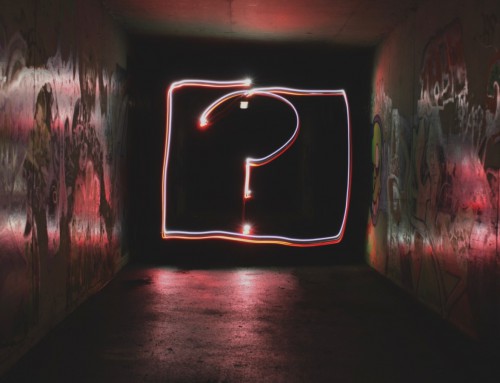Relationships are complicated, even at the best of times. If you’re in one, they can be hard work to maintain. And if you’re single, you have to navigate the minefield that is dating.
And it doesn’t help that we can’t resist comparing our love lives to those of people around us. If someone’s a serial dater and we’re settled down, we can be envious of the freedom. If someone’s settled down, we’re jealous of their commitment and stability. It’s a never-ending battle.
But time and again, people come to me wondering why their relationships always seem to fail. That the same things keep happening and they just can’t seem to meet the right person.
This is the first problem: when relationships fail, it’s easier to blame the other party. They weren’t the right person and now they’re gone and I need to find someone else.
But this way of thinking doesn’t address the fact that you are the common denominator in all your relationships. Sure, they might have been the wrong person for you, but maybe you also weren’t the best person for them. Even if the deterioration of the relationship was largely out of your control and there was poor behaviour on your partner’s part, there are still important lessons about yourself you can take from the experience. If you refuse to learn these lessons, you’ll absolutely keep repeating the same patterns over and over again.
You want a relationship for the wrong reasons
If you want a genuine, loving relationship that will stand the test of time, you need to be in the right headspace for it and open to what you will learn from the other person and about yourself. Otherwise, it’ll be like fitting a square peg through a round hole: it’s never going to work.
There are plenty of reasons for getting into relationships and these will largely vary depending on your individual circumstances. Perhaps you’re scared of being alone and jump into things too quickly, without properly getting to know the other person. Similarly, you might seek validation after a breakup and rush into something new before you’re ready. Or maybe you settle because trying to make things work with someone you’re not compatible with is easier than starting from scratch.
You’re repeating previous negative behaviours
This is a big one. Consciously or subconsciously, everything you’ve ever experienced in life and love will shape how you approach your relationships today. And, as a result, you can slip into toxic habits and repeat negative behaviours that doom your relationships from the start.
For example, perhaps you’re subconsciously seeking out people who aren’t good for you. You were once treated poorly by someone you loved. This then went on to establish a belief system that you don’t deserve to be loved. And now, when you approach new relationships, you subconsciously associate with people who you know will reinforce this theory and prove you right. It’s a similar case with trust issues: you need your partners to be untrustworthy to reinforce your belief that no one can be trusted.
This is just one example of how patterns can form. Even past experiences you’ve never given a second thought can go on to significantly impact your actions. If you frequently have the same experiences in your relationships, take the time to delve deeper, exploring where they might have stemmed from and the ways you let your past experiences manifest.
You have unrealistic expectations
We’ve all been guilty of this at one time or another. Blame films, books, fairy tales, or anything else. The ‘honeymoon phase’ ends and we’re quick to assume the relationship isn’t right for us anymore and it’s the other person that’s the problem.
But, like it or not, no relationship is going to be smooth sailing, nor will it be easy and lighthearted all day, every day for the rest of your lives. Perfectly healthy and ‘normal’ relationships experience ups and downs too. People grow, evolve, change, and your relationship has to adapt in order to keep up.
It’s about knowing the difference between a healthy relationship and a toxic one. Fights are normal, bickering is normal, going through rocky patches is normal. But so long as there is fundamental respect and care there, it doesn’t have to spell disaster.
All of this is to say that to approach your relationships in the best way, you need to take ownership of the active role you’re playing in them. While it’s easy to assume a relationship’s deterioration is entirely the other person’s fault, the common denominator in all your relationships is you, so it’s worth exploring the part you also might be playing and the ways you might be setting yourself up for failure.
Some of these things will be relatively obvious and easy to recognise; others you may struggle to pinpoint or be entirely unaware of. We love to not be at fault, which makes it hard to take responsibility for our own part in relationship struggles. And it takes time to build the self-awareness and unravel the defences, habits, and patterns we’ve put in place to avoid responsibility and potential pain. But by wanting to make a change, you get one step closer to turning over a new leaf and approaching relationships in a much healthier, more positive way.




